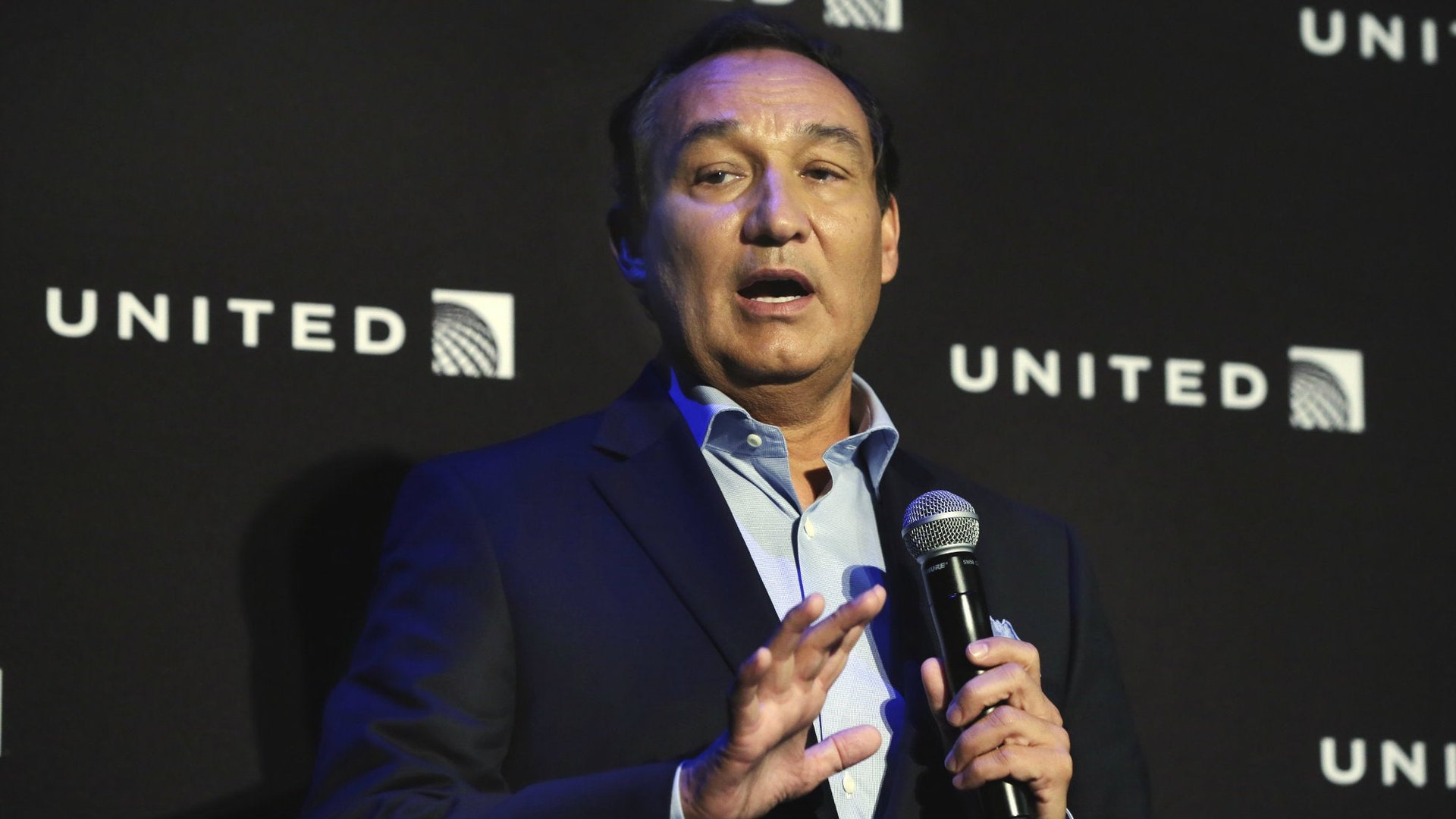There is such a thing as a textbook apology, and United’s CEO has failed it on all fronts
At the expense of share price, corporate reputation, and its passengers’ safety, United Airlines has spent the last few weeks offering a master class in how not to manage public relations. CEO Oscar Munoz’s evolving apologies to the disturbing April 9 incident in which a fare-paying passenger was violently dragged from an overbooked plane are the latest example.


At the expense of share price, corporate reputation, and its passengers’ safety, United Airlines has spent the last few weeks offering a master class in how not to manage public relations. CEO Oscar Munoz’s evolving apologies to the disturbing April 9 incident in which a fare-paying passenger was violently dragged from an overbooked plane are the latest example.
It didn’t have to be this way. In the classic text Crucial Conversations: Tools for Talking When the Stakes Are High, first published in 2002, authors Kerry Patterson, Joseph Grenny, Ron McMillan, and Al Switzler identify what an effective apology needs to do. It all comes down to one goal: create a feeling of safety.
Effective apologies right relationships that broke down because at least one of the parties involved felt unsafe. In most personal or professional settings, the type of safety we’re talking about is the emotional kind—you can’t contribute ideas freely if you fear you’ll be shamed or criticized for them, for example. But fear that one’s next flight could end in a bloody assault at the hands of the airline’s employees applies too.
This fear goes both ways. If a boss or someone in power sows fear unintentionally, then they will begin to feel hostility in response. Individuals and corporations under attack in the age of social media are especially vulnerable. The authors of Crucial Conversations write:
Unfortunately, since others feel unsafe, they may be trying to make fun of you, insult you, or bowl you over with their arguments. This kind of aggressive behavior doesn’t exactly bring out the diplomat in you. So instead of taking their attack as a sign that safety is at risk, you take it at its face—as an attack. “I’m under attack!” you think. Then the dumb part of your brain kicks in and you respond in kind.
Ideally, the boss would step out of the conversation, re-establish trust and safety with a sincere apology that addresses the fear, and then return to the issue at hand. But more often, the boss (or corporation) gets defensive and double downs on efforts to justify behavior without taking into account the feelings it created.
On April 10, the day after the incident, Munoz heartily chose Option B.
Munoz’s first public apology was a failure on all fronts. His detached corporate-speak—“I apologize for having to re-accommodate these customers”—failed to address the most important part of an apology, which is acknowledging the behavior that made the recipient feel unsafe. The public was not horrified that a fare-paying passenger was bumped (excuse us, “re-accommodated”) from a flight, but that it was done in an inexcusably violent manner.
On April 11, he did a bit better.
Here, Munoz acknowledged what was truly disturbing about the videos of the passenger being dragged off the plane. He showed empathy for the abused customer and for a worried public. By his third apology, made during an April 12 interview on the talk show “Good Morning America,” Munoz seemed to have internalized these lessons.
“My first reaction to most issues is to get the facts and circumstances. My initial words fell short of truly expressing what we were feeling,” he said when asked why his first apology failed to convey the shame he claimed to feel. “And that’s something that I’ve learned from. The expression of apology… is an important part of a conversation like this.”
On that, he’s correct. As the Crucial Conversations authors write:
To offer a sincere apology, your motives have to change. You have to give up saving face, being right, or winning in order to focus on what you really want. You have to sacrifice a bit of your ego by admitting your error. But, like many sacrifices, when you give up something you value, you’re rewarded with something even more valuable—healthy dialogue and better results.